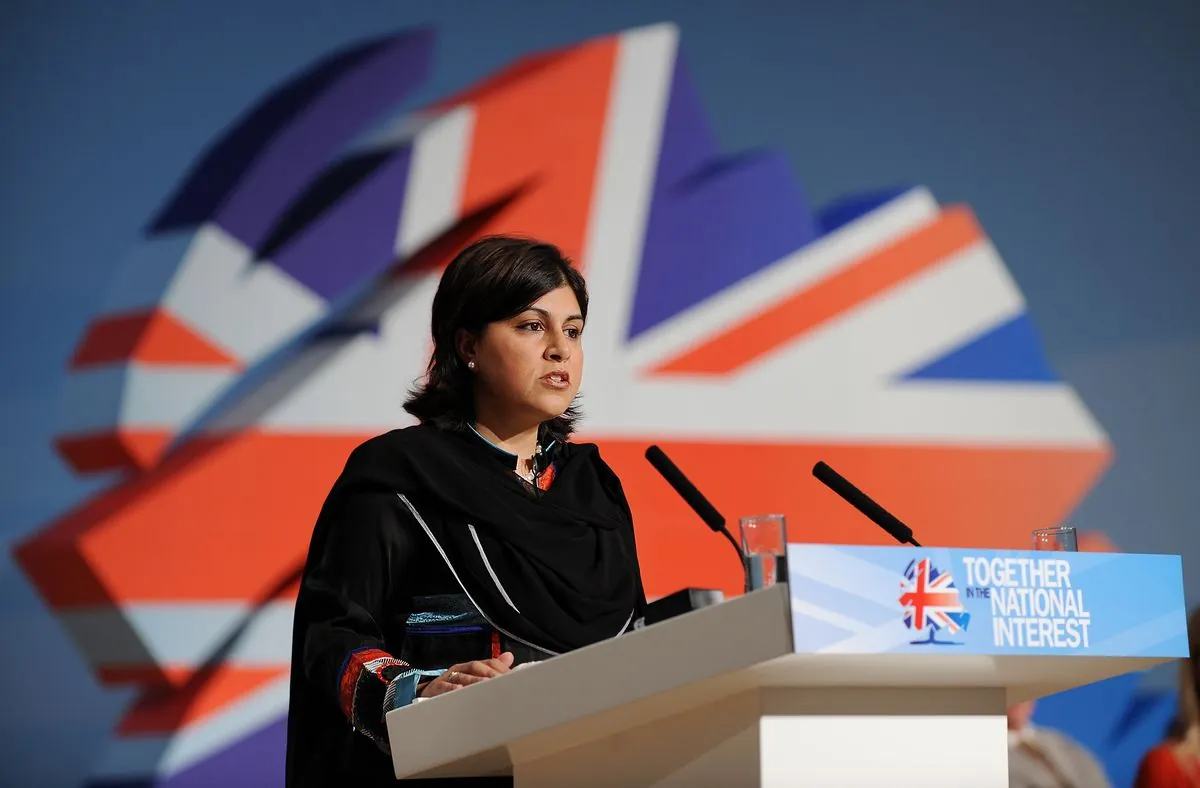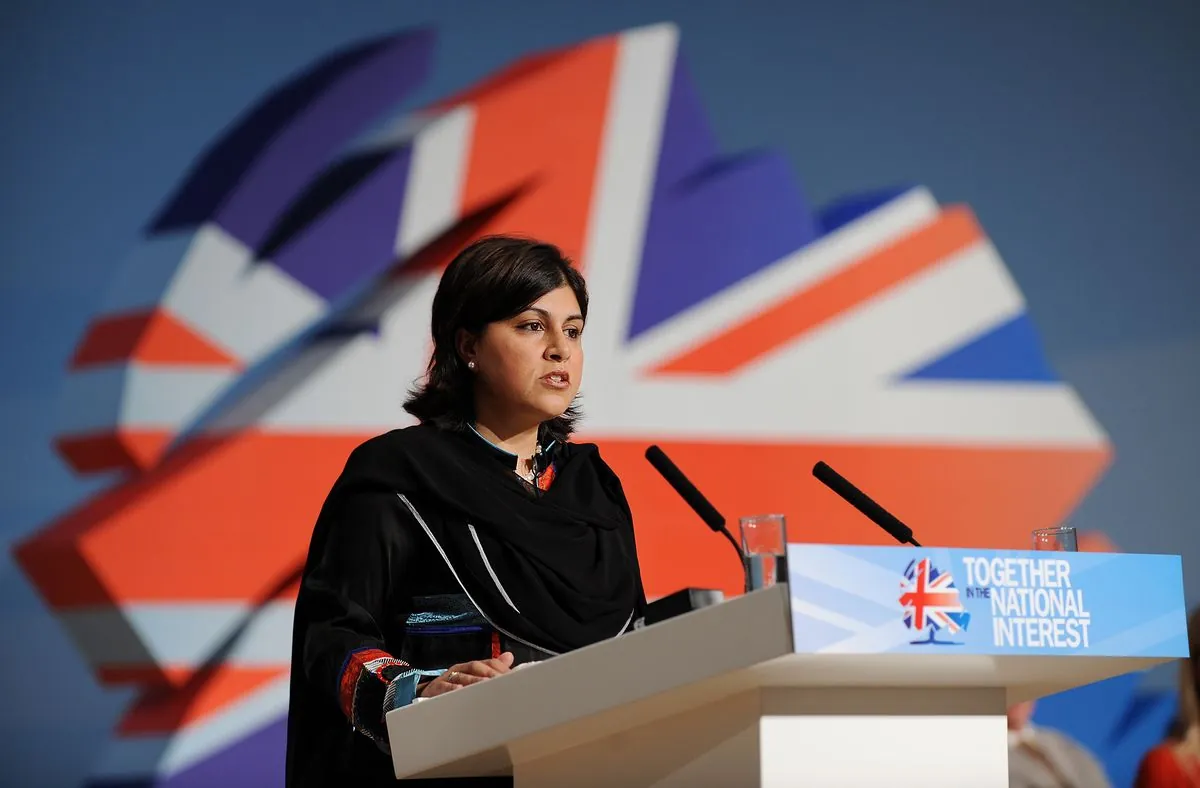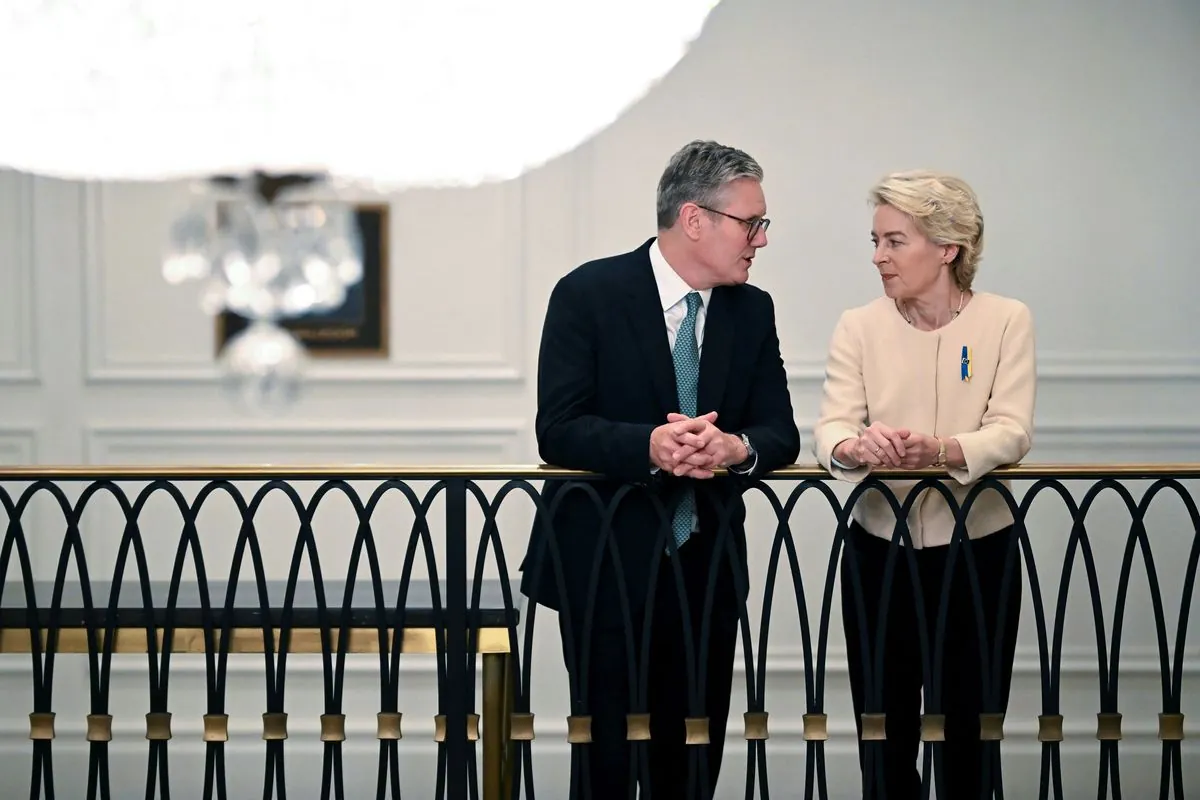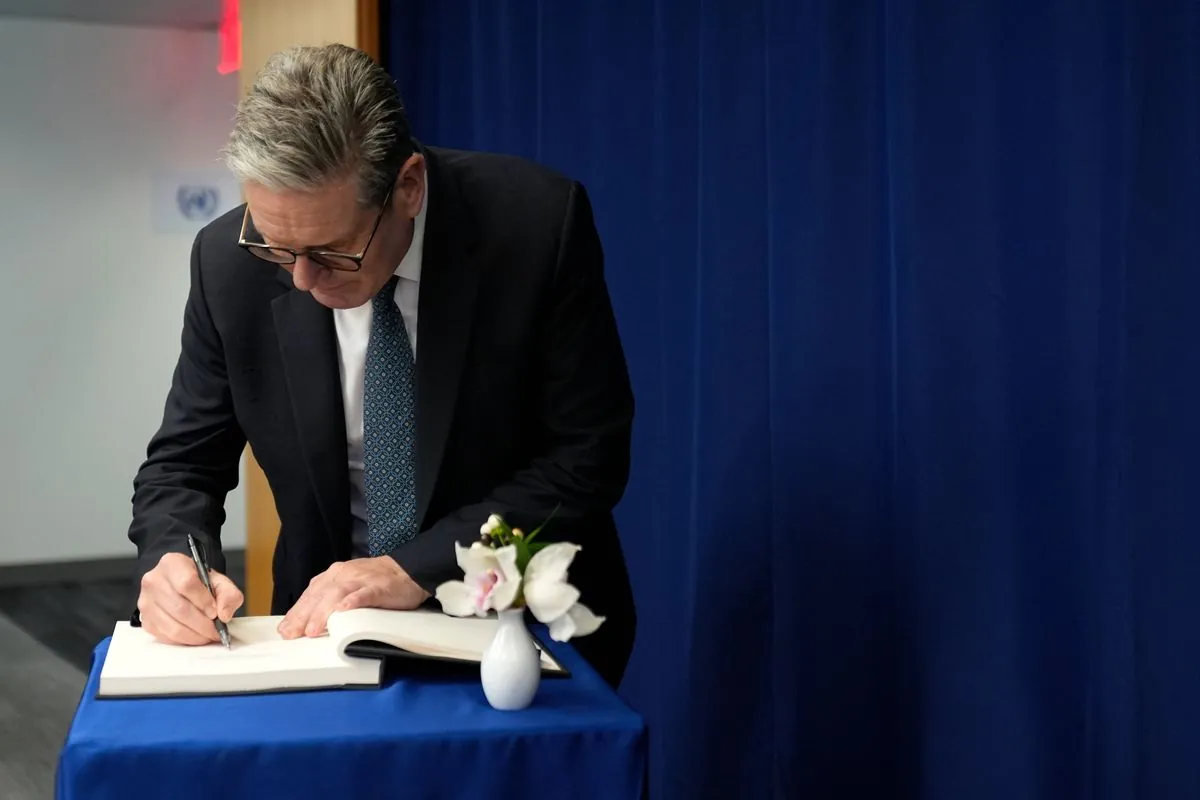First Muslim Cabinet Minister Quits Tories Over Party's 'Far Right' Shift
Baroness Warsi, Britain's first Muslim Cabinet minister, has resigned from the Conservative Party, citing its rightward shift and an investigation into her comments. Her departure marks a significant moment in UK politics.

Baroness Sayeeda Warsi, Britain's first Muslim Cabinet minister, has announced her departure from the Conservative Party. The decision comes amid an investigation into alleged "divisive" comments and her criticism of the party's rightward shift.
Appointed to the Cabinet by David Cameron in 2010, Warsi served as the Conservative Party chairman. Born in Dewsbury, West Yorkshire, in 1971, she studied law at the University of Leeds and was called to the Bar in 1996. Warsi worked as a solicitor before entering politics and was elevated to the House of Lords in 2007.
The recent controversy stems from Warsi's reaction to the acquittal of a protester who carried a placard criticizing Rishi Sunak and Suella Braverman. The placard used the term "coconuts," considered by many to be a racial slur. Warsi celebrated the acquittal on social media, prompting complaints and an investigation by the Conservative Party.

A Conservative Party spokesperson stated: "Complaints were received regarding divisive language allegedly used by Baroness Sayeeda Warsi. Baroness Warsi was informed an investigation was about to begin earlier this week. We have a responsibility to ensure that all complaints are investigated without prejudice."
In response, Warsi announced her decision to leave the party:
"It is with a heavy heart that I have today informed my whip and decided for now to no longer take the Conservatives' whip. This is a sad day for me. I am a Conservative and remain so but sadly the current party are far removed from the party I joined and served in Cabinet."
Warsi has been an outspoken critic of Islamophobia within the Conservative Party and has advocated for greater representation of women and minorities in politics. She co-chaired the Conservative Party from 2010 to 2012 and has been involved in various charitable organizations.
This is not the first time Warsi has taken a stand against her party's policies. In 2014, she resigned from the Cabinet over the government's policy on Gaza. She also campaigned for the UK to remain in the European Union during the 2016 referendum.
Warsi's departure highlights ongoing tensions within the Conservative Party regarding its direction and treatment of different communities. As a vocal advocate for interfaith dialogue and a frequent commentator on British politics and social issues, her decision to leave may have significant implications for the party's image and relationship with minority communities.
Next week, Warsi is set to publish a book titled "Muslims Don't Matter," which is likely to further explore her views on the treatment of Muslim communities in British politics and society.


































